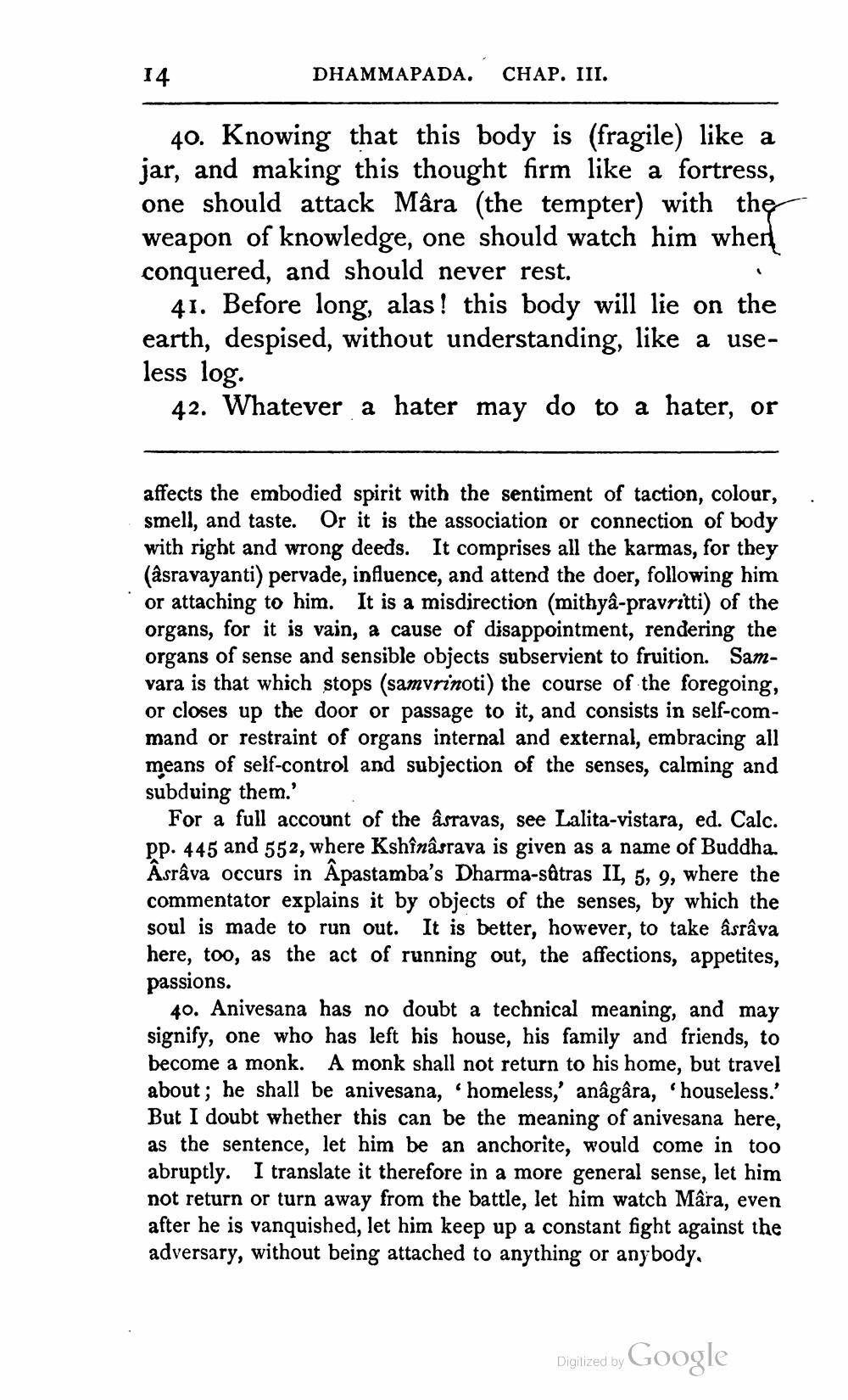________________
14
DHAMMAPADA. CHAP. III.
40. Knowing that this body is (fragile) like a jar, and making this thought firm like a fortress, one should attack Mâra (the tempter) with the weapon of knowledge, one should watch him when conquered, and should never rest.
41. Before long, alas! this body will lie on the earth, despised, without understanding, like a useless log.
42. Whatever a hater may do to a hater, or
affects the embodied spirit with the sentiment of taction, colour, smell, and taste. Or it is the association or connection of body with right and wrong deeds. It comprises all the karmas, for they (ásravayanti) pervade, influence, and attend the doer, following him or attaching to him. It is a misdirection (mithya-pravritti) of the organs, for it is vain, a cause of disappointment, rendering the organs of sense and sensible objects subservient to fruition. Samvara is that which stops (samvrinoti) the course of the foregoing, or closes up the door or passage to it, and consists in self-command or restraint of organs internal and external, embracing all means of self-control and subjection of the senses, calming and subduing them.'
For a full account of the âsravas, see Lalita-vistara, ed. Calc. pp. 445 and 552, where Kshînâsrava is given as a name of Buddha. Âsráva occurs in Âpastamba's Dharma-sâtras II, 5, 9, where the commentator explains it by objects of the senses, by which the soul is made to run out. It is better, however, to take asrâva here, too, as the act of running out, the affections, appetites, passions.
40. Anivesana has no doubt a technical meaning, and may signify, one who has left his house, his family and friends, to become a monk. A monk shall not return to his home, but travel about; he shall be anivesana, 'homeless,' anâgâra, “houseless.' But I doubt whether this can be the meaning of anivesana here, as the sentence, let him be an anchorite, would come in too abruptly. I translate it therefore in a more general sense, let him not return or turn away from the battle, let him watch Mâra, even after he is vanquished, let him keep up a constant fight against the adversary, without being attached to anything or anybody,
Digitized by Google




